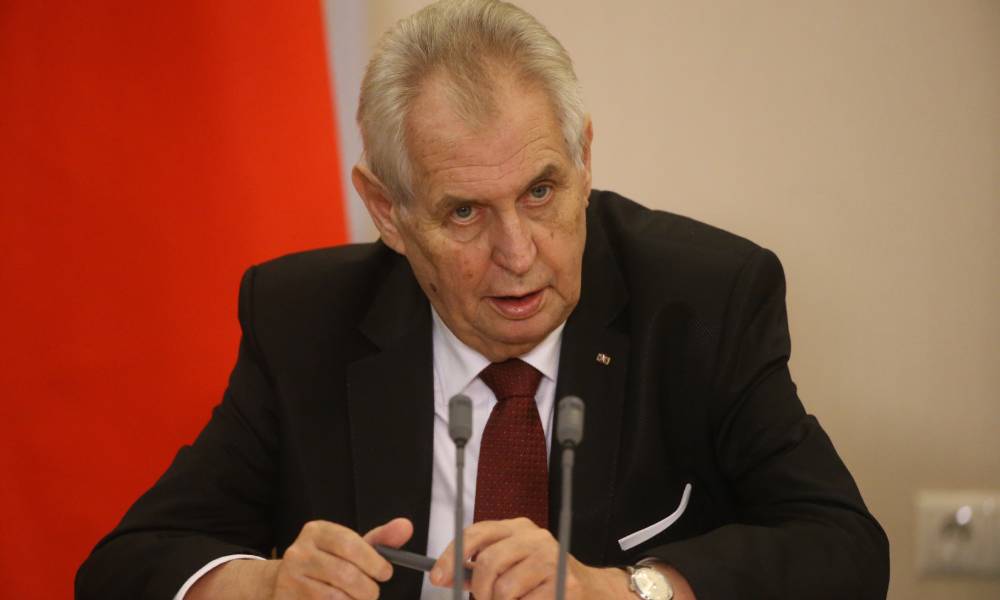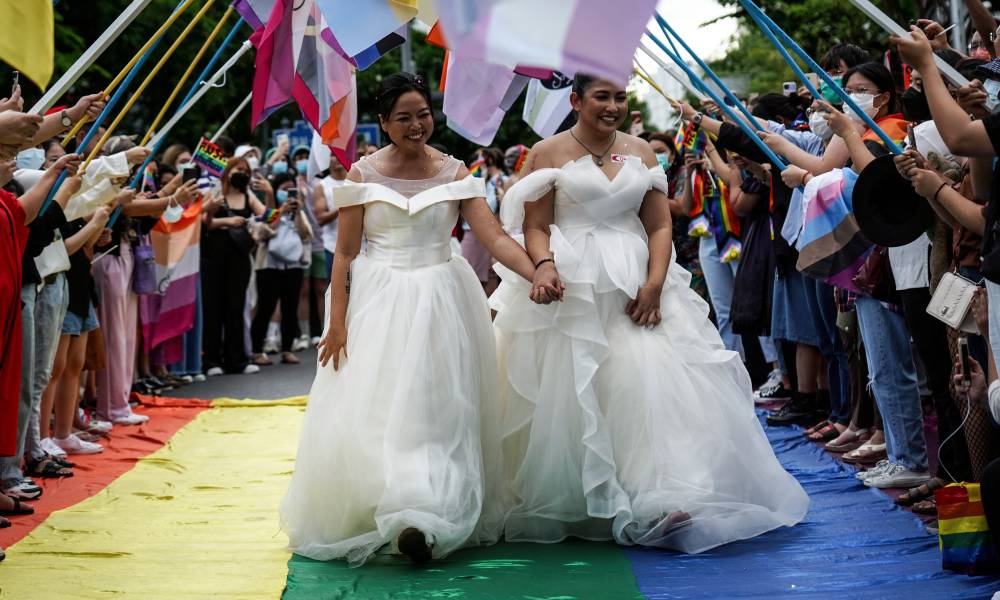“I felt like I was flying,” says Aloysius Ssali, recalling the day he was granted refugee status in the UK in 2010. He had been living on London’s streets for five years, homeless and undocumented since the UK didn’t formally recognize sexuality as a reason for protection at the time.
Ssali grew up as a gay man in Uganda, where homosexuality can be punished by life imprisonment and where he had been targeted for campaigning for LGBTQ rights. When he returned home in 2005 after studying in the UK, he was captured and tortured – a common occurrence in the country, which ranks 13th on the LGBTQ danger index.
After finally being granted asylum in the UK at age 33, his elated feeling was soon quashed due to further barriers.
“Navigating the system as a gay man was very difficult,” he told LGBTQ Nation.
Wanting to support others in the same position, he founded Say it Loud Club, a community of LGBTQ asylum seekers and refugees helping others to navigate the UK immigration system. Over 10 years later, more claims were being granted based on sexuality and gender identity, and Ssali believed things were slowly progressing.
But in April, when the British Home Office announced plans to relocate asylum seekers to Rwanda, Ssali was “horrified”. Under the $150 million deal, people deemed to have traveled to the UK illegally will be relocated to Rwanda for processing and resettlement, a plan some are comparing to the United States’ Asylum Cooperative Agreement.
While the scheme has elicited concerns for all asylum seekers, human rights organizations are particularly concerned about LGBTQ individuals.
“Everyone we work with is completely terrified,” says Sonia Lenegan, legal and policy director at Rainbow Migration, an organization that supports LGBTQ people through the UK’s asylum system.
While homosexuality was decriminalized in Rwanda in 2010, it “remains frowned upon”, according to the British government’s own foreign office, with LGBTQ people facing societal abuse, including by authorities, and gender transitioning remaining illegal. The Home Office admitted to the persecution of the LGBTQ community in Rwanda in a report, but said ill-treatment is not systemic.
“They are basing it on the idea that people are not actively prosecuted for being part of the LGBTQ community,” says Daniel Sohege, director of Stand For All, a human rights advocacy organization. “But there are multiple cases of people being prosecuted under public decency acts.”
Human Rights Watch reported last year that Rwandan authorities had arbitrarily detained over a dozen gay and transgender people before a conference in Kigali, accusing them of “not representing Rwandan values.”
“People are being stigmatized, abused and discriminated out of existence,” Lenegan told LGBTQ Nation. “You can say that on paper something is lawful, but in reality, it is very difficult for [LGBTQ] people to live openly in Rwanda.”
Neela Ghoshal, senior director of law, policy and research at Outright International, a US-based LGBTQ human rights organization, says there is “no space for dissent or freedom of expression” in Rwanda, and LGBTQ people, particularly refugees, cannot count on protection from the state against discrimination. She warns the UK to learn from the Trump-era Asylum Cooperative Agreement, which saw asylum seekers relocated to Guatemala– a country deemed highly unsafe for LGBTQ people and referred to as “among the most dangerous countries in the world” by the US State Department itself– where at least 20 LGBTQ people were murdered in 2020 alone.
While the scheme was suspended by the Biden administration last year, LGBTQ asylum seekers were highly endangered. Ghoshal says no provisions were made for LGBTQ people and the majority of asylum cases were never heard. She worries the same could apply to Rwanda.
“[The Home Office] seems to see the potential for violence against LGBTIQ+ people […] as an acceptable level of collateral damage, which, from a human rights standpoint, is absolutely unacceptable,” Ghoshal told LGBTQ Nation. “If you’re actually concerned about helping people find a safe place, this kind of offshoring of asylum claims doesn’t work.”
The United Nations has firmly opposed the UK-Rwanda deal, saying offshoring schemes like these evade international obligations under the Refugee Convention and wealthy nations should provide their share of safety for asylum seekers. But the Biden administration’s plans to end Title 42, an order invoked by the Trump administration that utilized the COVID-19 pandemic as a reason to deport asylum seekers from the US, were blocked by a federal judge.
Ghoshal hopes that the UK can do better.
“If the UK government continues with this policy, the conclusion that we […] will have to draw is that the UK doesn’t care about asylum seekers’ safety, including LGBTIQ+ asylum seekers,” she says.
The British Home Office says the scheme is a way to fight human trafficking, but opponents argue that it will just do the opposite once those resettled in Rwanda decide to leave. This was the case in Guatemala, with many leaving in attempts to reach the US again.
“People just disappeared,” Ghoshal says. “Most of the LGBTIQ people who ended up in that program were not willing to sit and wait in Guatemala where they felt unsafe.”
Trans women are in particular danger of abuse when trafficked and on trafficking routes between Central America, Mexico, and the US; Outright International documented multiple rape cases – another warning Ghoshal has against the UK’s policy.
“The Home Office has a track record of ignoring the LGBTQ community and the threats of persecution they’re under,” Sohege says. “They’ve started from a principle of, ‘we want to push this policy through’ […] and have just completely dismissed concerns from experts in the field.”
LGBTQ asylum seekers in the UK are going into hiding to avoid being taken to Rwanda, according to Rainbow Migration, which could put them at risk of exploitation and discrimination in employment, housing, and elsewhere. For LGBTQ asylum seekers who have struggled to come out, Ssali thinks this will reverse years of campaigning.
“We ask people: ‘Please don’t hide, please come out– we are going to give you a safe space’,” he says. “Now, that trust has been broken.”
While some hope provisions are put in place for LGBTQ people, many think the policy should be scrapped altogether.
“I don’t think there’s any way to make it tolerable,” Ghoshal says. “As someone who knows the overall human rights situation in the region, I believe firmly that it is not just LGBTIQ+ people who are going to be at risk. Anybody who is forced to live in Rwanda and who enjoys their freedom of expression is going to face potential risk.”
Legal cases are underway and many hope the policy won’t stand up to international scrutiny since the plans breaching three articles of the European Commission for Human Rights and three of the Refugee Convention.
“The UK’s priorities are upside down,” Ghoshal says. “If Britain wants to create a fake threat that asylum seekers are somehow going to cause harm in the UK, […] and the result is actually doing concrete harm to LGBTQ people, this is in complete violation of international human rights law and the basic sense of humanity.”
A Home Office spokesperson said Rwanda is “a safe and secure country” in which “LGBT+ people [do] not face a real risk of persecution”, and that they will assess each case individually. But campaigners are doing all they can to reverse the plans, and organizations like Say it Loud Club will continue to fight for LGBTQ asylum seekers.
“We have to be at the forefront; the people of color, the ethnic minorities, the LGBTQ people,” Ssali says. “We are the product of the asylum system in this country. The asylum system doesn’t belong to the government, it belongs to people like us.”




